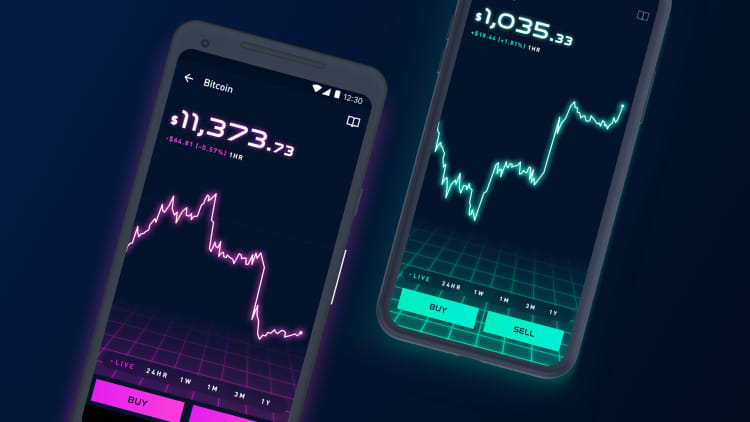
The online brokerage industry has been in what analysts describe as an "all out" price war this year. But in the race to zero, there is already a clear winner: Robinhood, a zero-commission stock-trading app.
Baiju Bhatt and Vlad Tenev, former classmates at Stanford University, founded two start-ups selling trading software to hedge funds. Now they are having success selling to investors pretty far down from Wall Street's 0.0001 percent.
"Younger Americans, millennials, are our customers," said Bhatt, co-founder of Robinhood, which they launched in 2013 and is the No. 43 start-up on the 2017 CNBC Disruptor 50 list. "People between 18 and 35, all around the U.S.," are the primary clients, Bhatt said.
The fee slashing has already hit stocks of online brokerage companies. In early February, after Charles Schwab cut its trade commission to $6.95, the shares of E-Trade Financial and TD Ameritrade tanked. Later that month, Fidelity announced a cut to its base stock-trading commission rate from $7.95 to $4.95 per trade. Schwab then responded by matching Fidelity's rates.
Even as the markets surged this year, stocks of online brokers haven't boomed. E-Trade Financial has managed a small gain, while TD Ameritrade is down more than 12 percent and Interactive Brokers is down more than 4 percent.
One of the things brokers lowering their fees may not want investors to know is that there may already be better options, especially for investors who decide based on fees alone. In addition to Robinhood's free trading, Interactive Brokers, which has historically offered the lowest fees, now boasts a $1 trading fee.
The price war would not be occurring without the huge move by investors into low-cost, exchange-traded funds, which can be bought and sold throughout the day. ETFs are on pace for $3 trillion in assets by the end of this year, and have already taken in more than $170 billion from investors in 2017. ETFs are amassing assets at a clip of more than $1 billion a day.
Traditional financial companies, such as the Vanguard Group, do offer free trading on their platform when investors are buying their proprietary products, such as ETFs, and for select client groups.
One of the reasons Robinhood is able to charge a zero commission is its lack of brick-and-mortar locations. Its business model has attracted some celebrity investors, including Snoop Dogg, Nasir "Nas" Jones and Jared Leto.
It is also attracting more, sophisticated investors through Robinhood Gold, a premium paid service that offers margin and extended-hours trading. It's priced at $10 per month, and the company says since launching last September, it's become the biggest revenue stream and accounts for half of the trading volume on the Robinhood platform.
"Letting customers borrow — that's one of the main ways we make money," Bhatt said.
Other financial start-ups are moving into that area as well: Wealthfront recently launched a service allowing its clients to borrow against their portfolios.
Financial professionals have expressed concern about the endless fee war encouraging investors to trade more than is wise or necessary, as well as about the move to margin lending as a sign of an overheated stock market.








